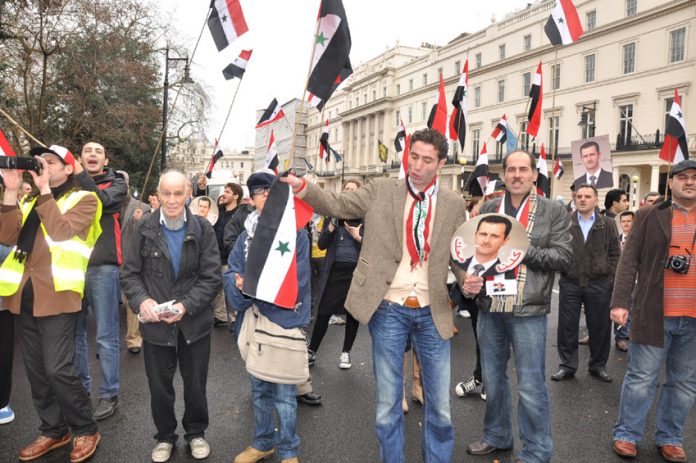
TURKEY scrambled six F-16 fighter jets near its border with Syria yesterday afternoon after Syrian helicopters came close to the border, but remained in Syrian air space.
Tensions have escalated since Saturday’s Geneva conference failed to call for President Assad to go.
With Turkish troops and air forces on full alert, and Saudi troops on Jordan’s border with Syria, armed with tanks and missile launchers, plus air support, incursions into Syria are on the agenda.
On Friday, Turkey said it had begun deploying rocket launchers and anti-aircraft guns along the border in response to the downing of its F-4 Phantom jet on 22 June.
Meanwhile western backed Syrian opposition groups have rejected the UN-brokered peace plan for a ‘political transition’ in Syria, calling it ‘a waste of time’.
They vowed that they would never negotiate with President Bashar Assad or members of his regime.
The international conference in Geneva on Saturday accepted UN special envoy Kofi Annan’s plan calling for the creation of a ‘transitional government’, but at Russia’s insistence the compromise agreement left the door open to Syria’s president being part of an ‘interim administration’.
Russia and China insisted that the Syrians themselves must decide how any ‘transition’ happens, rather than allow others to dictate their fate.
The opposition Local Coordination Committees (LCC) group slammed the outcome of the Geneva meeting.
The LCC, which organises action on the ground in Syria, called the ‘transition’ accord ‘just one version, different in form only, of the demands of Russian leaders allied to the Assad regime and who cover it militarily and politically in the face of international pressure’.
Syrian opposition leaders outside the country rejected any notion of sharing in a transition with Assad.
Speaking in Cairo, Haitham Maleh said the agreement ‘was of no value’.
He added: ‘The Syrian people are the ones who will decide the battle on the ground, not those sitting in Geneva or New York or anywhere else.’
Bassma Kodmani, a Paris-based spokesperson for the Syrian National Council, said the agreement is ‘ambiguous’ and lacks a mechanism or timetable for implementation.
The UN plan calls for establishing a transitional government of national unity, with full executive powers, that could include members of Assad’s government, the opposition and other groups.
It would oversee the drafting of a new constitution and elections.
US Secretary of State Hillary Clinton insisted on Saturday, after the meeting, that Assad would still have to go, saying it is now ‘incumbent on Russia and China to show Assad the writing on the wall’ and help force his departure.
However, Russian Foreign Minister Sergey Lavrov stressed that the plan does not require Assad’s ouster, saying there is ‘no attempt in the document to impose on the Syrian people any type of transitional process’.
Chinese Foreign Minister Yang Jiechi also stressed that ‘outsiders cannot make decisions for the Syrian people.’
The Geneva meeting ‘failed’, said Al-Baath, the newspaper of the ruling Syrian party.